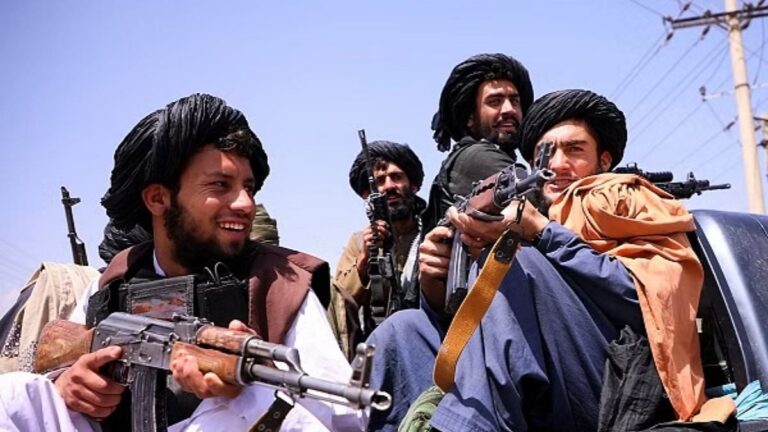NEW DELHI: Cross-border fighting with Afghanistan has divided Pakistanis. Reeling from violent attacks by their former allies, many of them see Taliban-run Afghanistan as a source of betrayal and instability. Kabul’s failure to curb the activities of the Pakistan Tehreek Taliban, an extremist group that frequently undermines security within Islamabad, is a major reason for this sentiment.
The latest escalation follows Pakistan’s airstrikes on TTP hideouts in Afghanistan in retaliation for an attack on North Waziristan district in Khyber Pakhtunkhwa province on December 21 that killed 16 Pakistani soldiers. Pakistan claimed the airstrikes targeted TTP fighters, but the Taliban government accused Islamabad of killing at least 46 civilians, including women and children. The Taliban claim they have targeted several locations near the disputed Durand Line border in response to Pakistani violence.
@CherieDamour_ complained that Afghanistan is fine with US attacks but will be angry if Pakistan retaliates.
View full article
“Many Afghan nationalist accounts here persistently complain to the US about Taliban rule (calling for US intervention) and are furious that Pakistan is fighting the Taliban. They For them, the only actor authorized to attack Afghanistan is the United States. They supported American drones that killed Afghan civilians, but they were only defending themselves from terrorists based on Afghan soil. spread propaganda about Pakistan,” she wrote.
Free and fair journalism will remain important in 2025
You are critical to ensuring independent journalism thrives. Support us in providing you with unbiased, in-depth stories that matter.
In a similar vein, @PakiSwift wrote, “300 innocent Afghan refugees were shot dead on the Iranian border by Iranian border forces, but the Taliban couldn’t say anything. But somehow, Pakistan… Then, when Pakistan reacts to cross-border terrorism emanating from there, they will start jumping around like monkeys.”
Meanwhile, another X user acknowledged Pakistan’s role in the debacle. “Pakistan took full advantage of Western knowledge to fund the Taliban in Afghanistan, but the Taliban became too powerful and too nationalistic to control, and we are now seeing the consequences. In the end, you reap what you sow.”
Relationship between Taliban and Pakistan
Sami Yousafzai, a journalist and political analyst who has covered the region extensively, said that despite the rhetoric of retaliation and war, both countries could avoid a full-scale conflict because neither country can afford the consequences. He claimed to be highly sexual.
“Pakistan has a strong military, including nuclear capabilities, but the Taliban wields influence through asymmetric tactics such as suicide bombings, and groups like the TTP and Baloch separatists are increasingly destabilizing across borders. “This makes direct confrontation dangerous because both sides can cause harm, but we cannot afford an all-out war,” he told ThePrint.
The Taliban, on the other hand, have no “political understanding” at all. The first Taliban regime was overthrown by al-Qaeda and now the TTP is causing them trouble. Yousafzai pointed out that a major problem for the Taliban is their popularity in Afghanistan, where anti-Pakistan sentiment is deep-rooted. Afghans see Pakistan as a meddler, and the Taliban, once allied with Pakistan, now face significant pressure at home.
“This is history repeating itself. The problem with Pakistan is that they are absolutely happy to have a Talibah-type regime in Afghanistan, a regime that is alienated and isolated, without any recognition or international representation. be,” Yousafzai added.
politics and boundaries
At the heart of the conflict is the issue of Pashtun nationalism and the controversial Durand Line, which divides the Pashtun community between Pakistan and Afghanistan. Pakistan has long been accused of using the Taliban to deal with the Pashtun issue, an ongoing conflict over Pashtun-majority areas that straddle both countries. However, this strategy backfired as Taliban nationalism grew stronger.
Once seen as a buffer against Pashtun separatism, the Taliban now advocate Pashtun unity that undermines Pakistan’s territorial integrity and interests. This puts Pakistan in a difficult position, as the very groups it supported to maintain influence in Afghanistan are now complicating Pakistan’s regional strategy.
Analysts are not sure what will happen next.
“Afghanistan under the Taliban is not a typical regime. It is abnormal,” Yousafzai stressed. He added that Pakistan is a stable and powerful country with a strong military and significant international influence, but it needs to be careful.
“Pakistan has a greater responsibility than the Afghan Taliban because the Taliban operate like undisciplined naughty children. They are unpredictable and dangerous and Pakistan needs to be wary of them. ”


